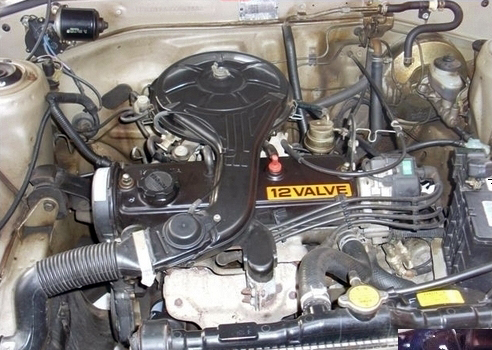Engine Purchasing Professional Tips on Choosing the Right Engine for Your Certain Requirements
Choosing the right engine for your particular demands entails an intricate interaction of variables that go past plain horsepower numbers. From power result to sustain performance, the decision-making process can be intimidating. Comprehending the subtleties of engine kinds, sizes, and their compatibility with your automobile is vital. There are skilled pointers that can assist navigate this terrain with self-confidence. By diving into the details of power versus efficiency, assessing fuel rankings, and budgeting for lasting expenses, one can truly optimize their engine choice.
Power Vs. Effectiveness: Discovering the Equilibrium

When selecting an engine, it is crucial to strike an equilibrium in between power and effectiveness to satisfy your details needs effectively. Power refers to the engine's capacity to create energy for propulsion, determining variables like velocity, hauling capacity, and total efficiency (Toyota Tazz Engine For Sale). On the various other hand, performance connects to how well the engine makes use of fuel to create power, affecting aspects such as fuel economic situation and environmental kindness
Achieving the best equilibrium between power and performance is essential because an engine that is as well powerful might consume extreme fuel, resulting in greater operating prices and unnecessary pressure on the atmosphere. Alternatively, an engine that focuses on performance over power might lead to slow efficiency, especially popular scenarios like lugging heavy tons or driving uphill.
To make an educated decision, consider variables such as your common driving problems, the desired usage of the car, and your personal preferences. By assessing your demands and concerns, you can choose an engine that strikes the ideal balance in between power and performance, guaranteeing optimal efficiency while minimizing environmental influence and operating expense.
Recognizing Engine Dimension and Kind

In addition, engine kind plays a vital duty in figuring out the efficiency characteristics of an engine. Typical engine kinds include inline engines, V engines, and rotary engines, each with its unique benefits and drawbacks. The engine type impacts elements such as the engine's size, weight distribution, and power shipment. Recognizing the interplay in between engine dimension and type is essential in selecting an engine that aligns with your specific demands and top priorities, whether it be power, performance, or an equilibrium of both.
Consider Your Vehicle's Needs
Considering your car's requirements is an essential action in the engine option process to ensure ideal efficiency and capability. It is important to examine factors such as the planned use the vehicle, its weight, pulling capacity, and fuel efficiency needs. For example, if you are trying to find an engine for a durable vehicle that will be utilized for towing, you will need a powerful engine with high torque capabilities. On the various other hand, if you are picking an engine for a compact cars and truck mostly utilized for city commuting, fuel effectiveness might be a more vital variable to consider.

Reviewing Gas Performance Rankings
Examining fuel efficiency ratings is an important facet of choosing the ideal engine for your vehicle, making certain price financial savings and ecological sustainability. Gas effectiveness ratings, usually measured in miles per gallon (MPG) for gasoline engines or kilowatt-hours per 100 miles (kWh/100 miles) for electrical engines, show just how much a car can travel on a details go to my site amount of fuel or electricity. Higher MPG or reduced kWh/100 miles worths symbolize much more efficient engines, converting to reduced gas expenses and reduced carbon discharges.
Furthermore, contrast different engine options within the very same automobile class to determine the most affordable choice. Elements such as engine dimension, weight, aerodynamics, and hybrid or electric capacities can all affect fuel effectiveness.
Budgeting for Long-Term Prices
Purposefully intending for lasting costs is necessary when choosing an engine, making sure monetary sustainability over the car's lifespan. While the initial acquisition rate of an engine is a substantial aspect, it is vital to take into consideration the long-lasting expenses associated with upkeep, fixings, and fuel intake.
Moreover, investigating the availability and expense of substitute parts for the chosen engine is essential in budget plan planning. By meticulously budgeting for these long-term costs and factoring them into the decision-making procedure, individuals can pick an engine that not just meets their immediate needs yet you can look here likewise continues to be affordable throughout its life expectancy.
Final Thought
Finally, picking the appropriate engine for your particular requirements calls for stabilizing power and performance, recognizing engine dimension and kind, considering your car's needs, reviewing fuel efficiency scores, and budgeting for long-term expenses. By carefully considering these aspects, you can make sure that you select an engine that satisfies your demands and gives optimal performance for your car.
To further refine the selection process of an engine that strikes the optimal balance between power and efficiency, it is vital to dig right into the complexities of understanding engine dimension and kind. Engine dimension refers to the total quantity of air and gas that can be pressed through the engine cyndrical tubes. Usual engine types include inline engines, V engines, and rotary engines, each with its distinct advantages and drawbacks. Understanding the interplay in between engine size and type is important in choosing an engine that aligns with your specific demands and priorities, whether it be power, effectiveness, or a balance of both.
Fuel efficiency rankings, commonly gauged in miles per gallon (MPG) for gasoline engines or kilowatt-hours per 100 miles (kWh/100 miles) for electrical engines, suggest exactly how far a vehicle can travel on a particular quantity of fuel or power.